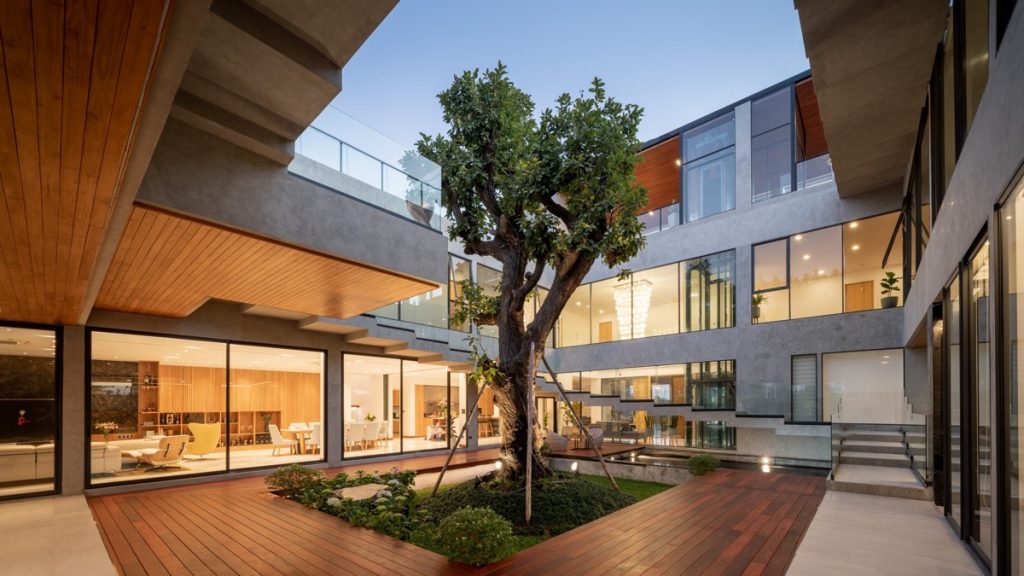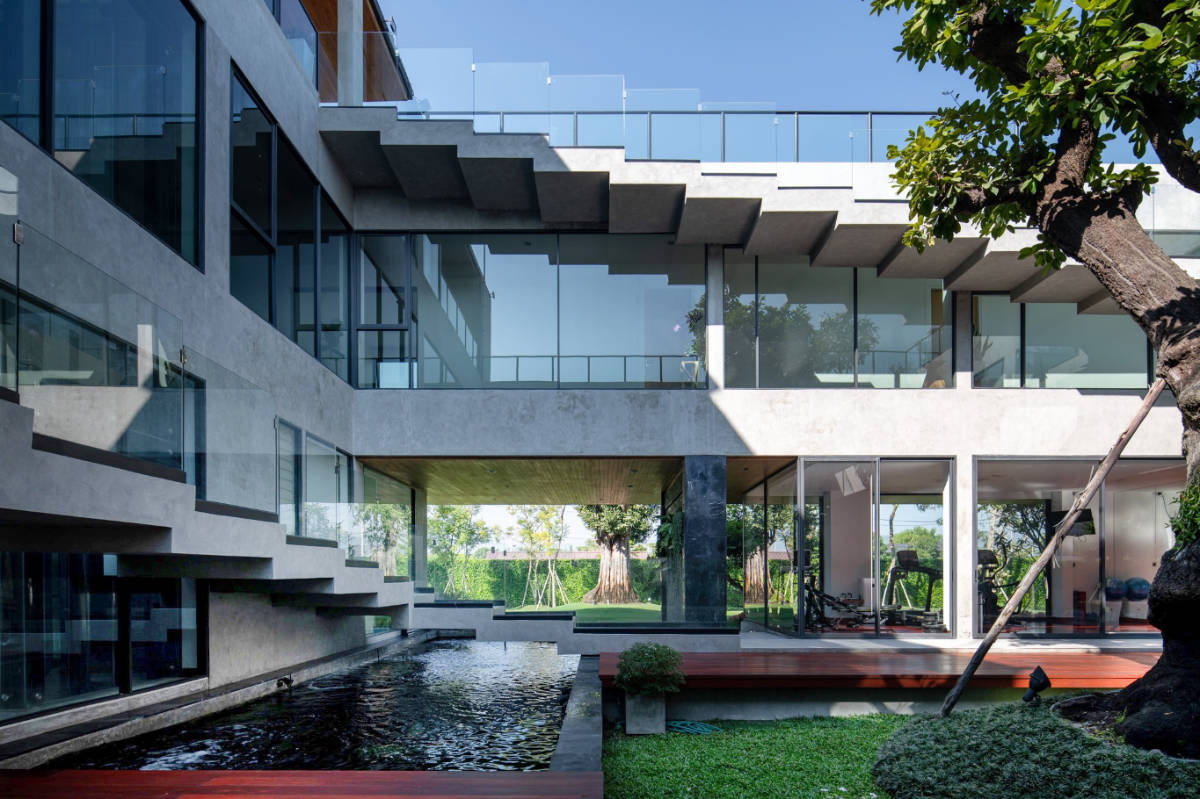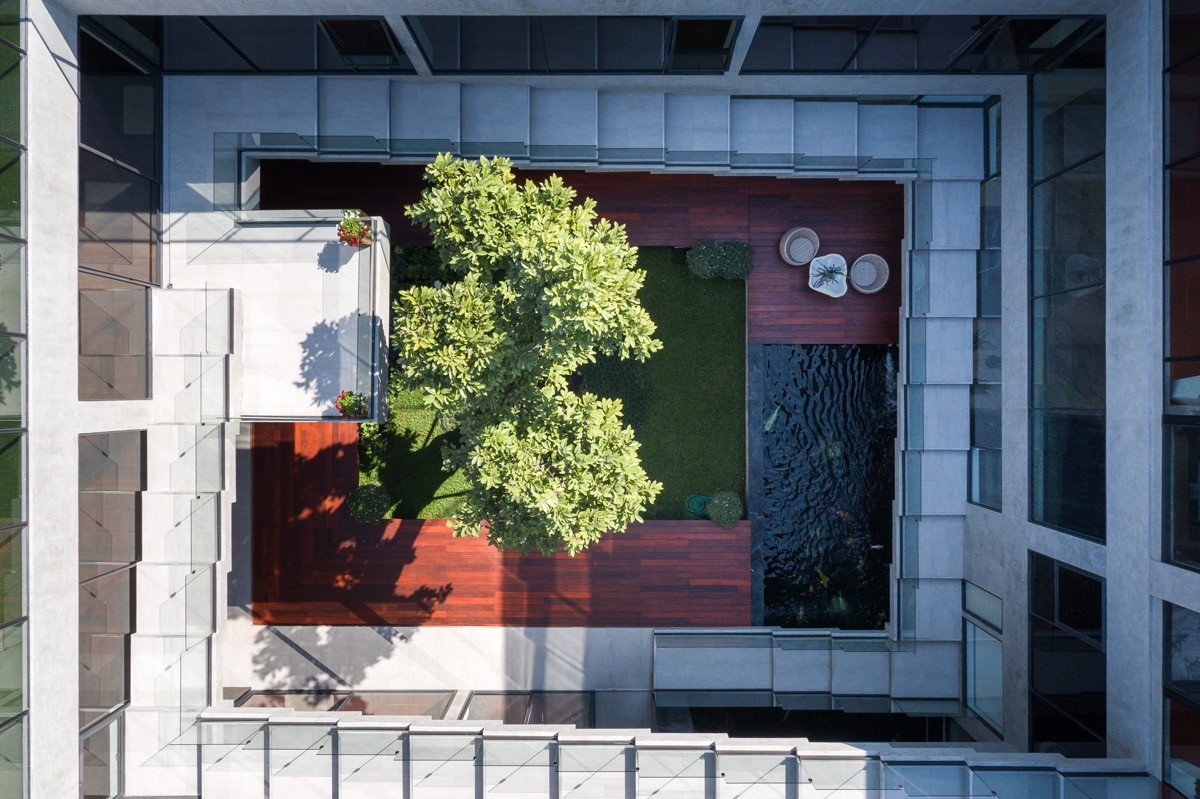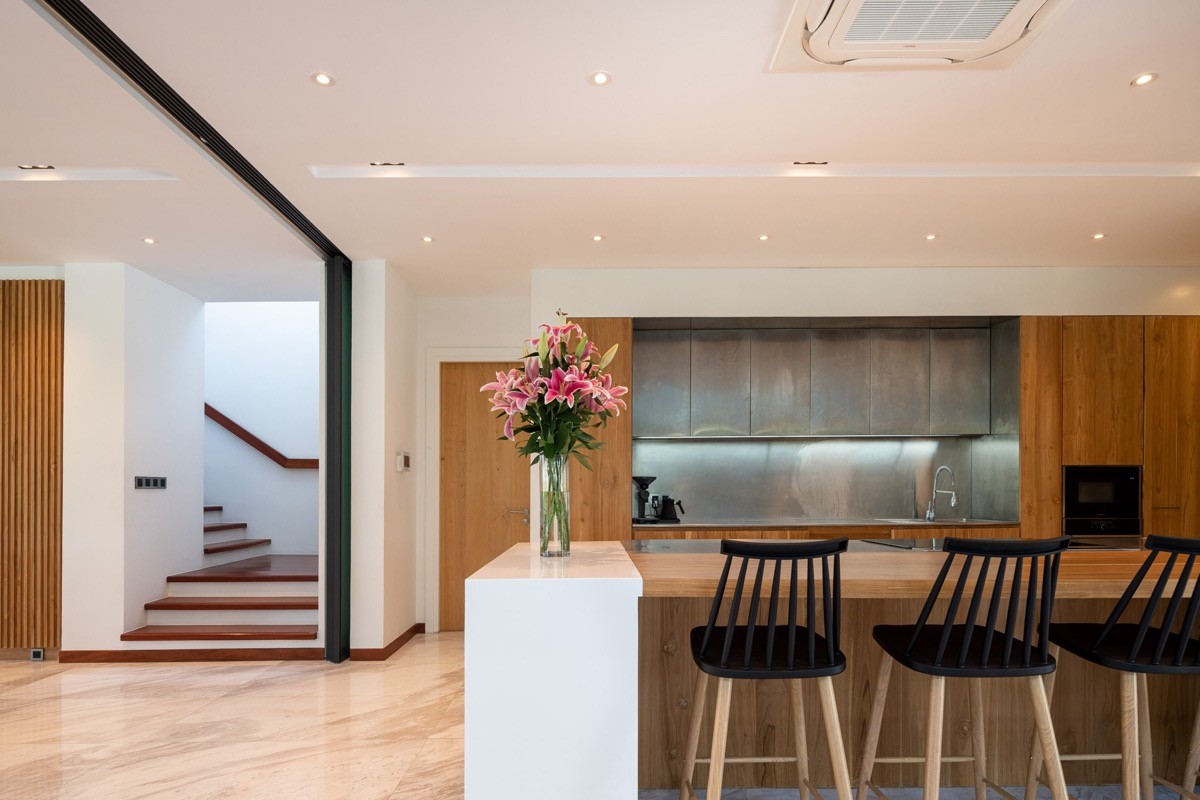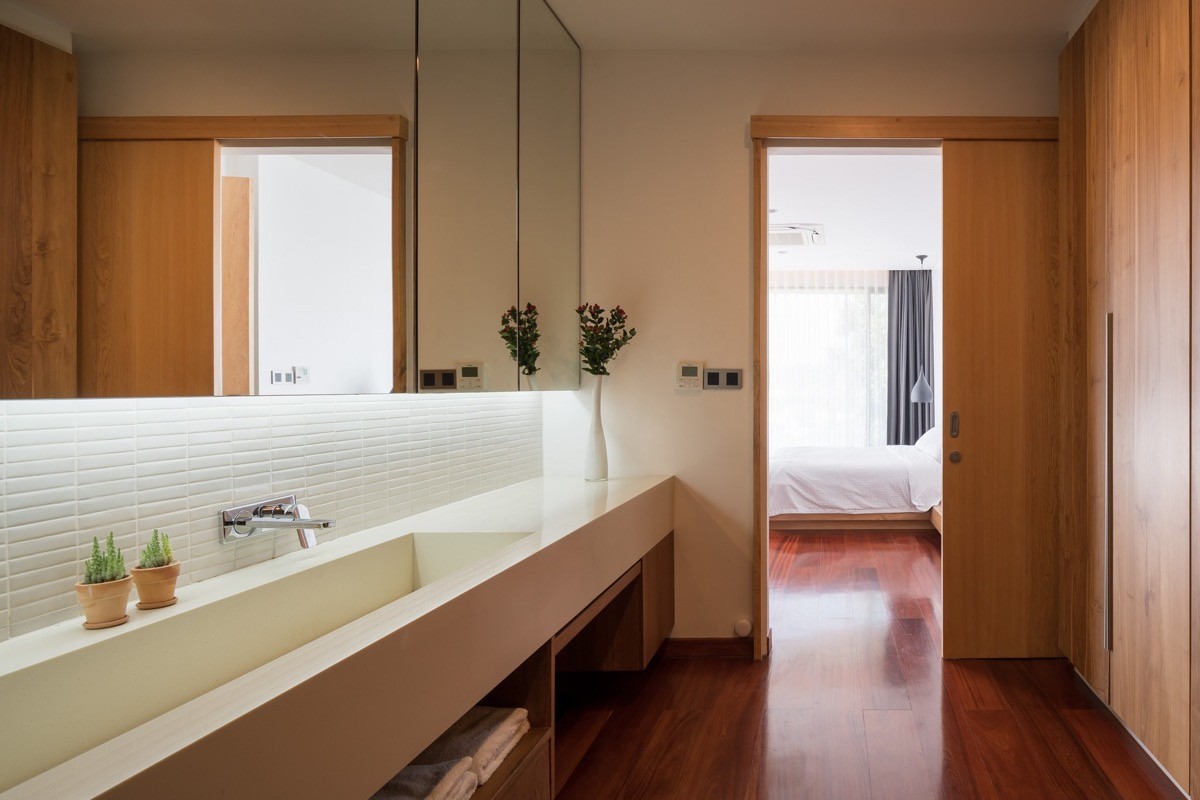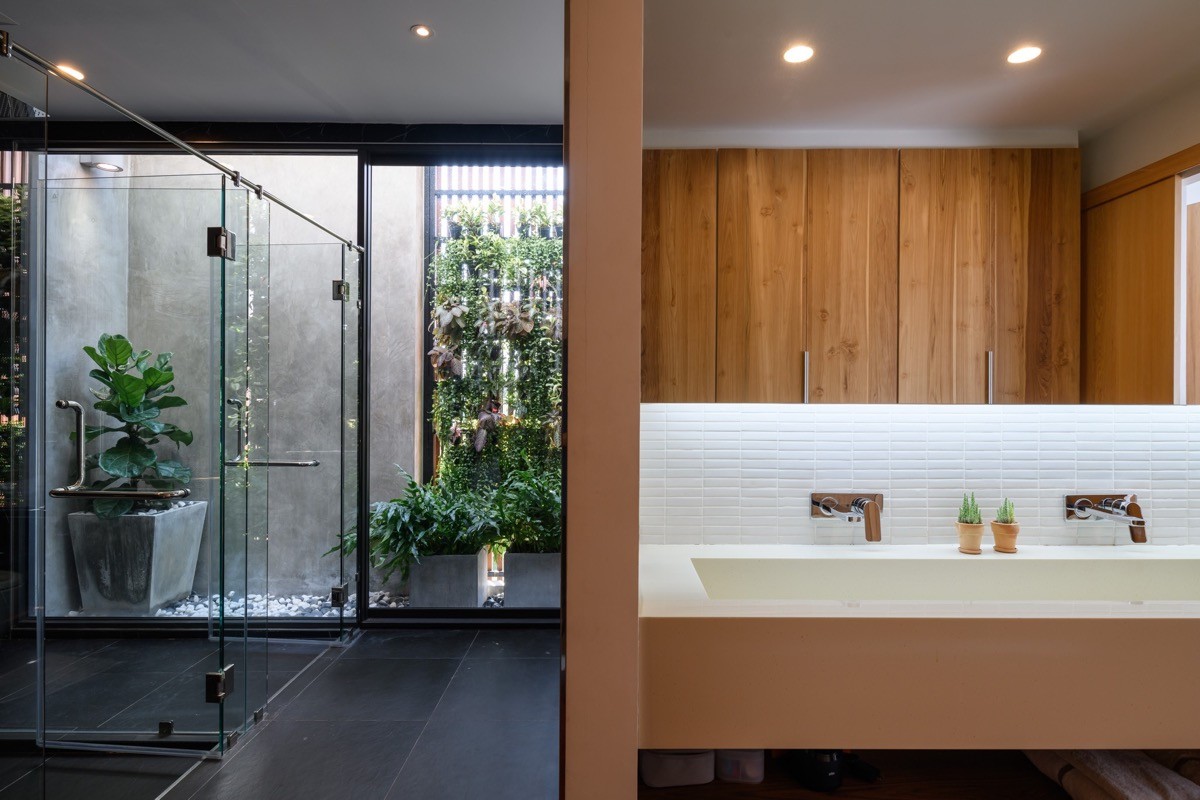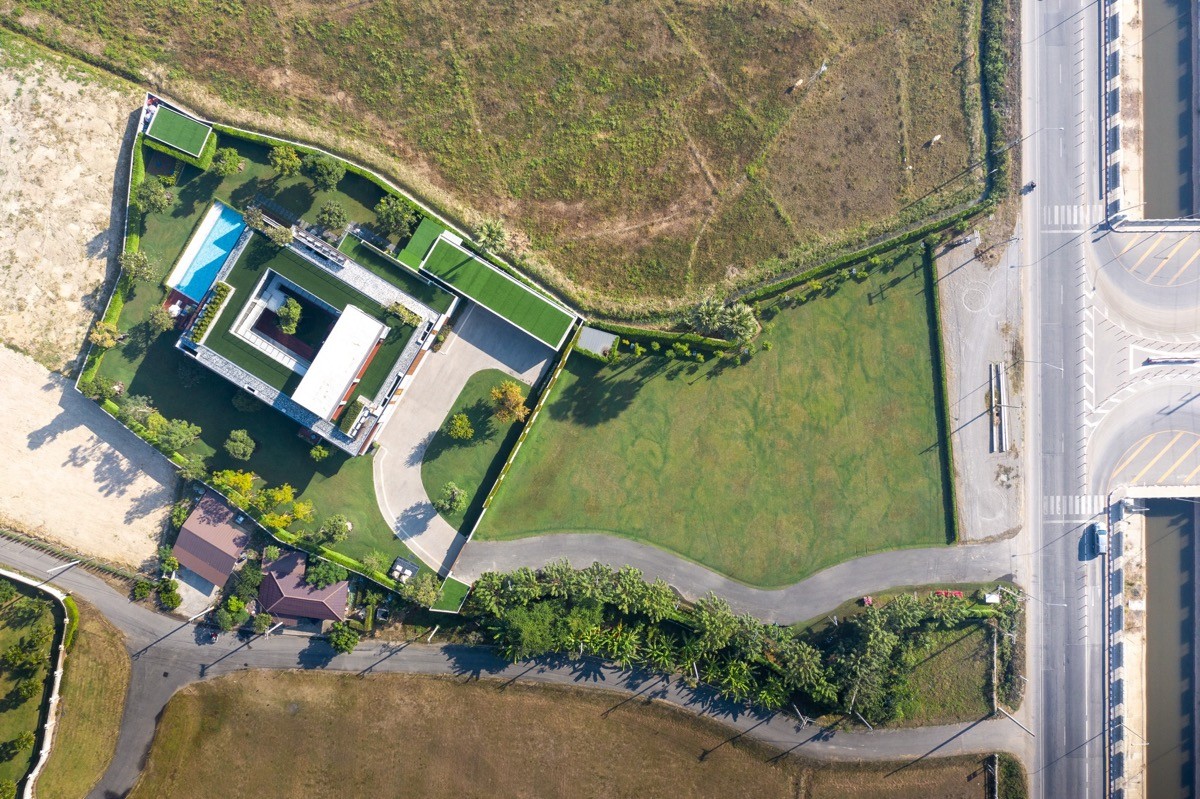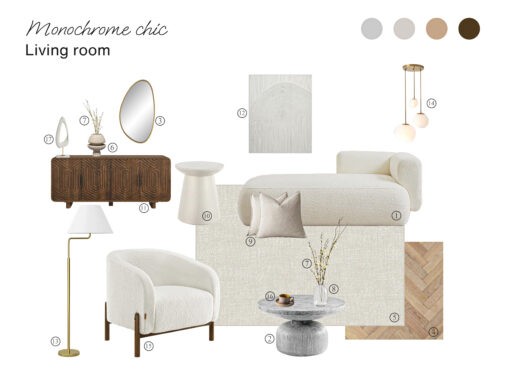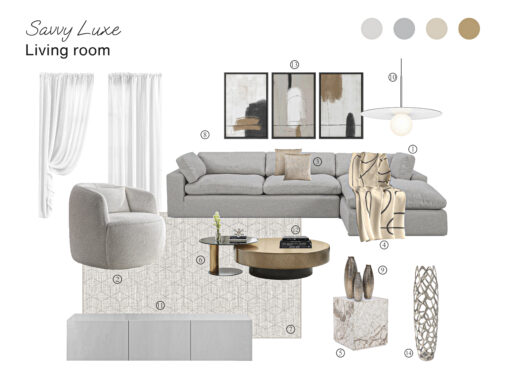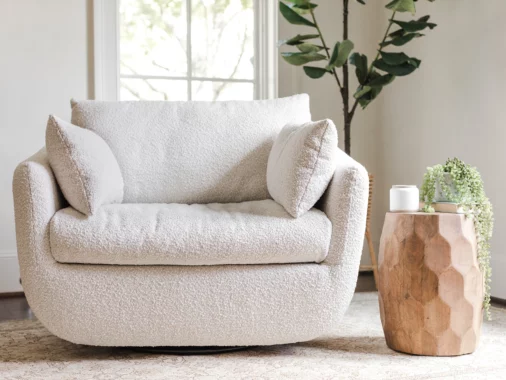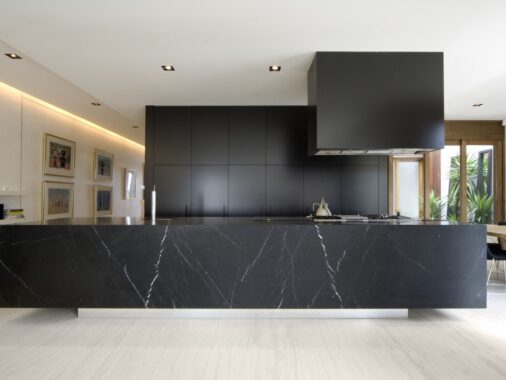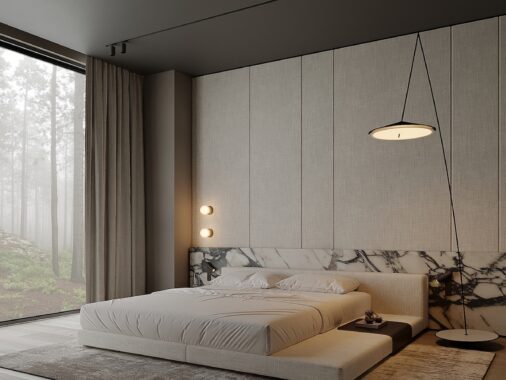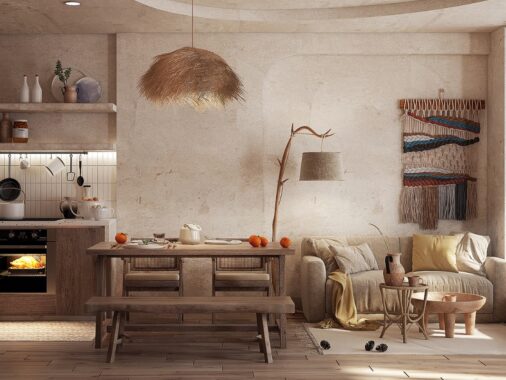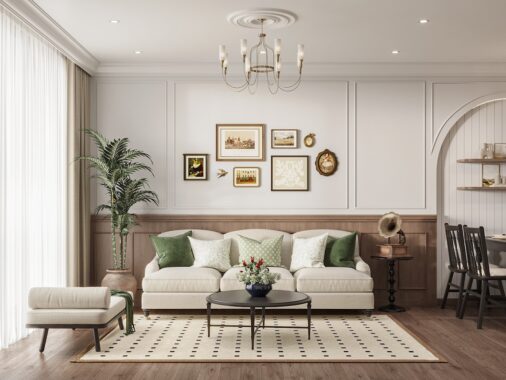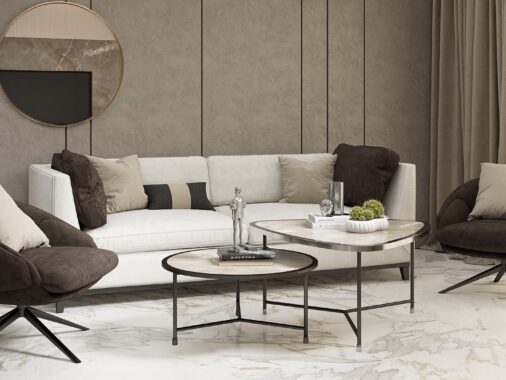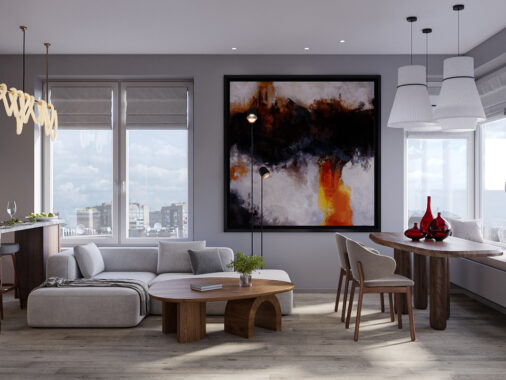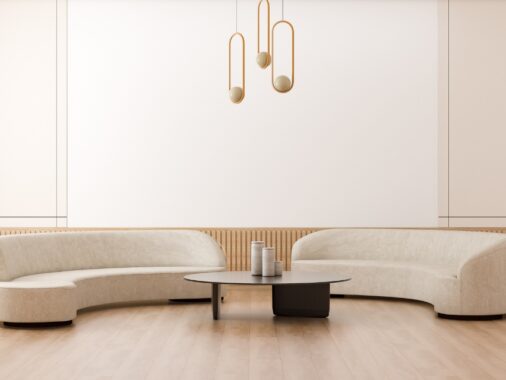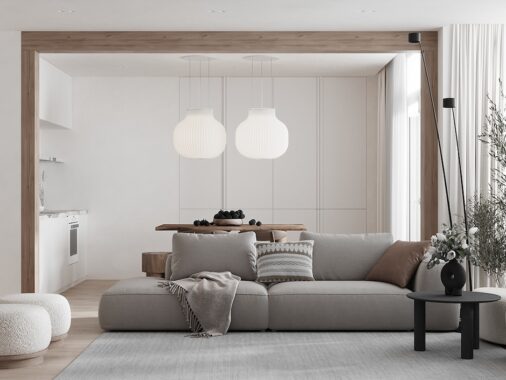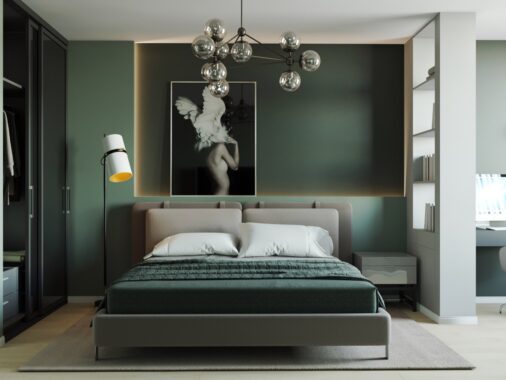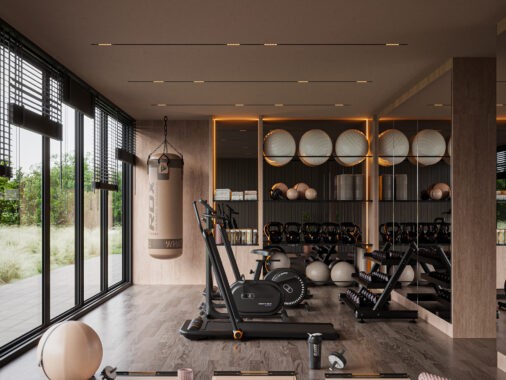This family compound is a 2,000 square metre property in Hangdong district, Chiang Mai, Thailand, created by Full Scale Studio. Jongluck Villa is home to 3 small families: Parents, their son’s family, and their daughter’s family. Paddy fields and the local village surround the location on Canal road, along with views of Doi Suthep mountain to the rear of site in the Northwest. The design spans 3 storeys: A ground floor with common area, living area, service area, swimming pool and car parking. The second floor contains bedrooms for each family unit, whilst the final floor accommodates some service units but more prominently a rooftop garden where the whole family can come to relax.
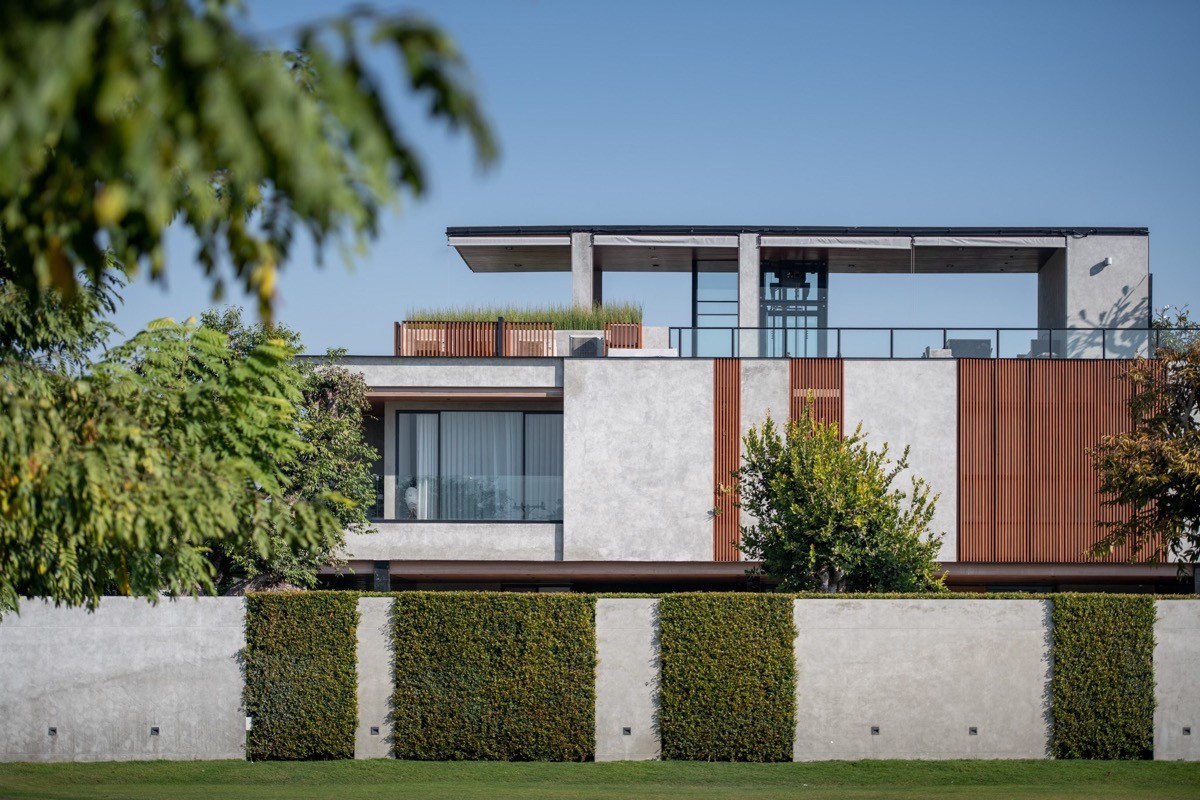
The boundary wall design incorporates sections of dense foliage to break up the concrete plain, and craft a more welcoming image of the triple family home.
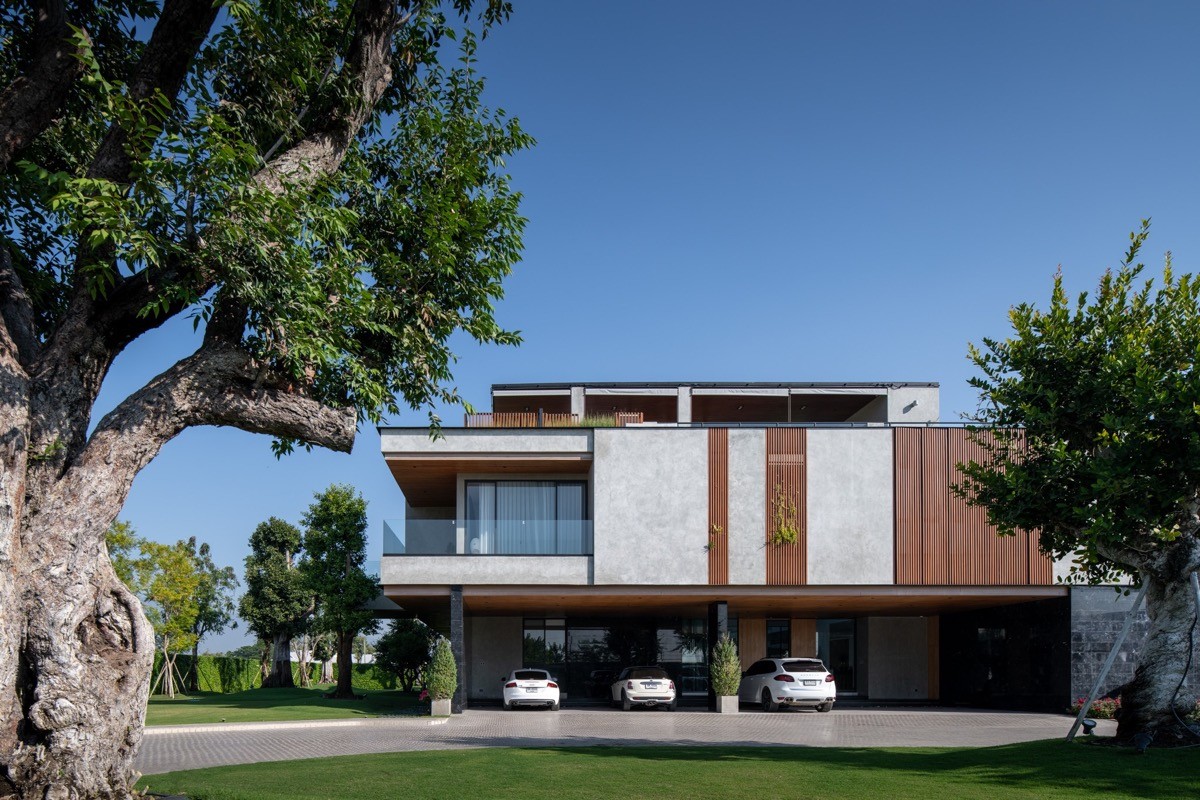
Once past the boundary, the modern exterior is a linear design composed of reinforced concrete and rich stained timber cladding. Car parking is provided under shade.
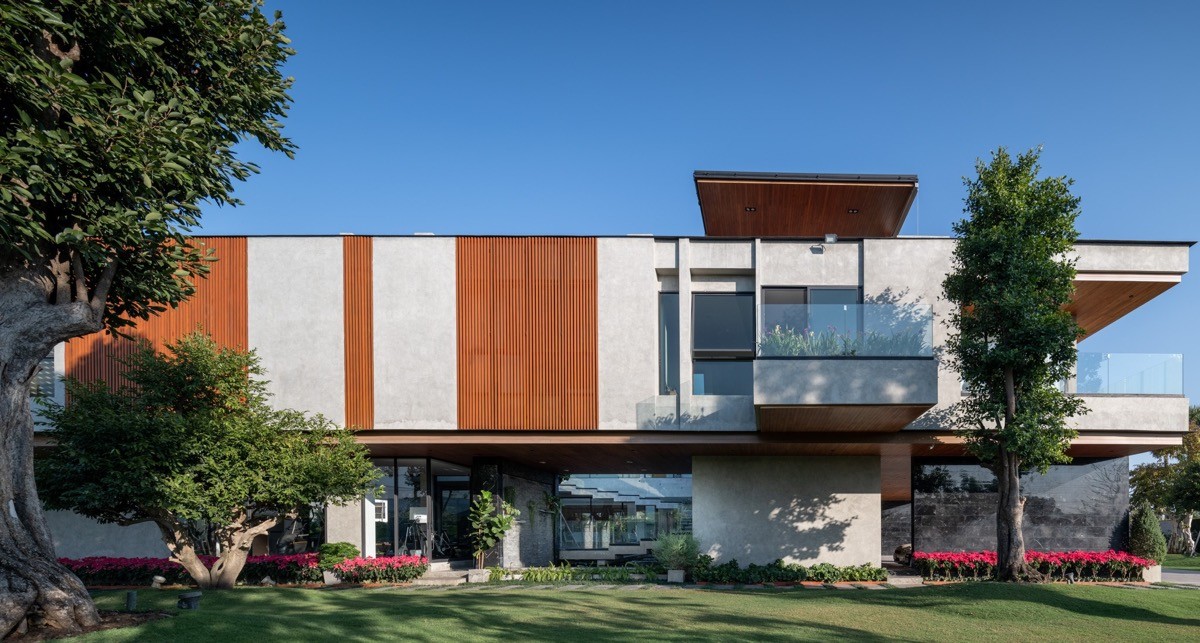
A cantilever slab terrace lightens the form of the building. The terrace also provides the family members with another opportunity to remain closer with the natural environment.
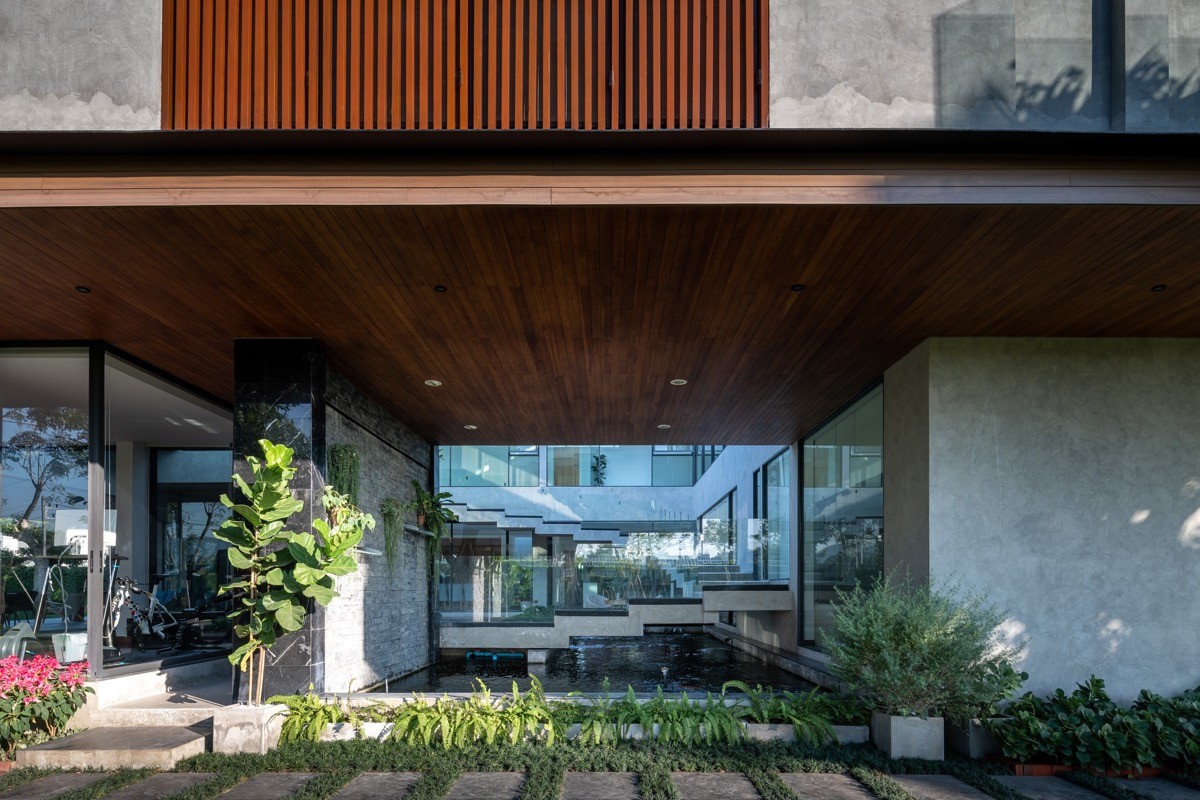
Expanses of glass and huge open voids allow line of sight to pass straight through the building and out of the other side…
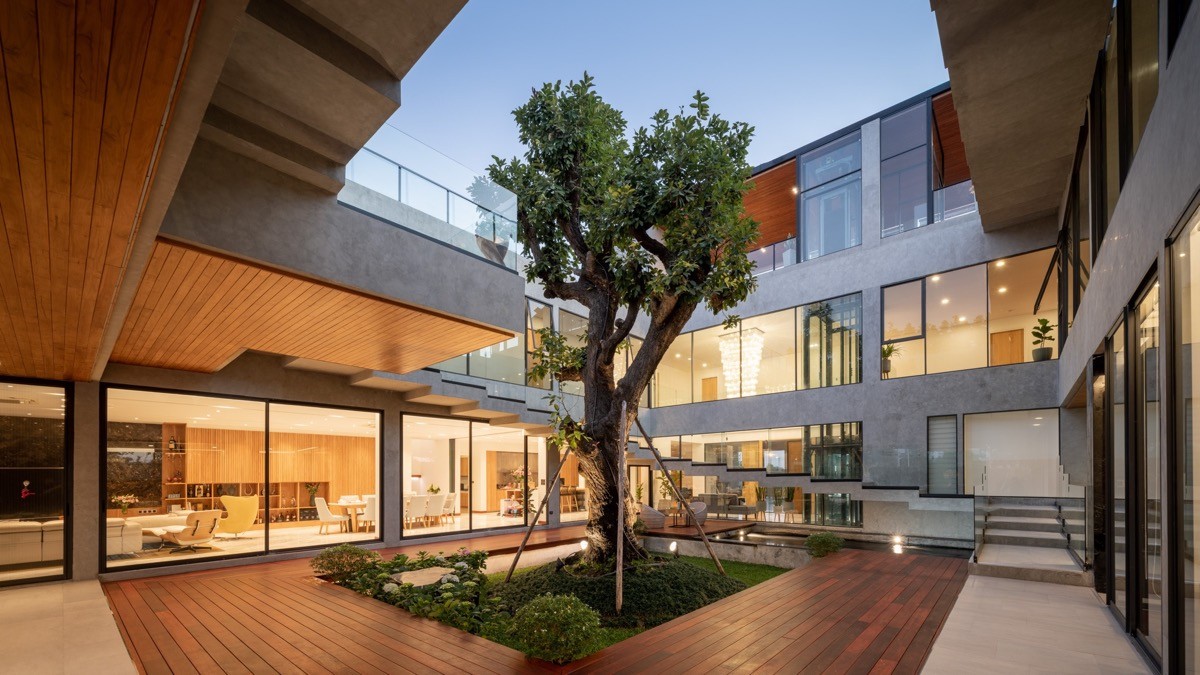
… This is largely due to a stunning courtyard design at the core of the compound, where a symbolic White Meranti tree grows.
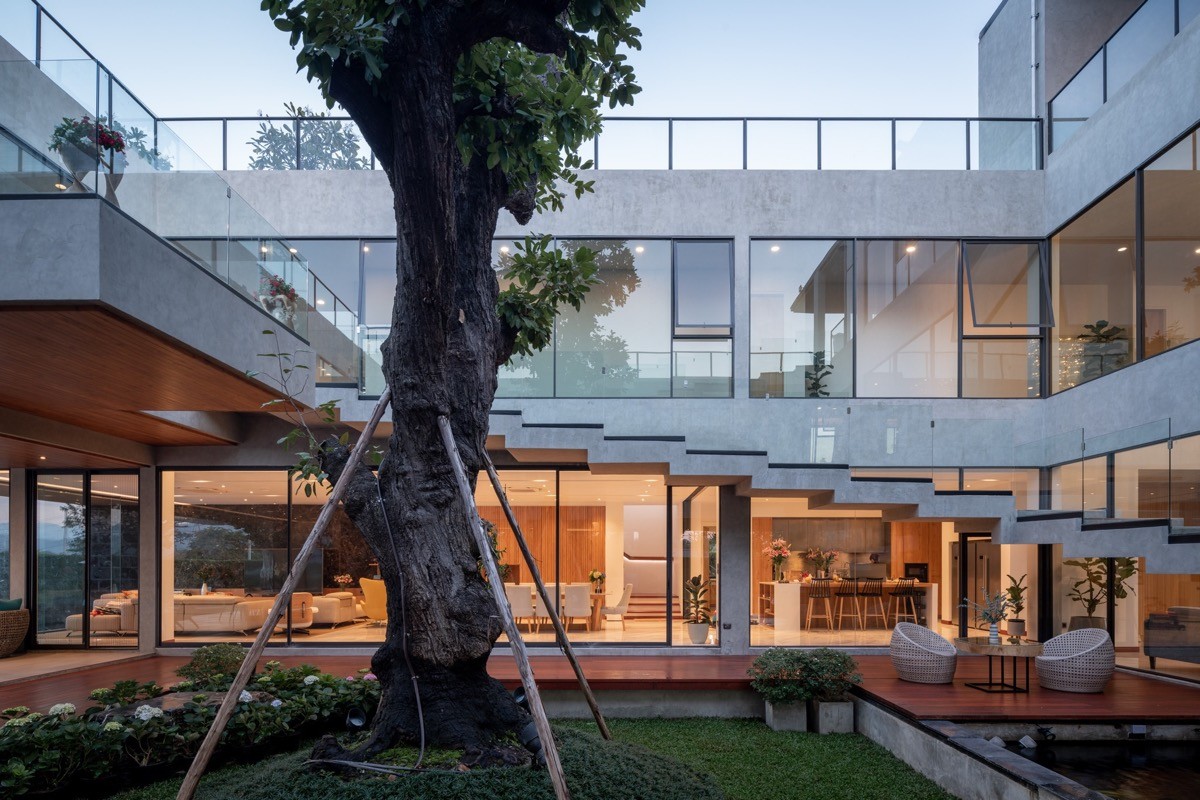
It is believed in traditional Thai culture that the White Meranti symbolises compromise, a quality that is prevalent in the humble manner of the people of Thailand. Compromise is also the quality that keeps a large family unit living together in peace. Large surrounding windows widen the view of the courtyard and create opportunities for connection.
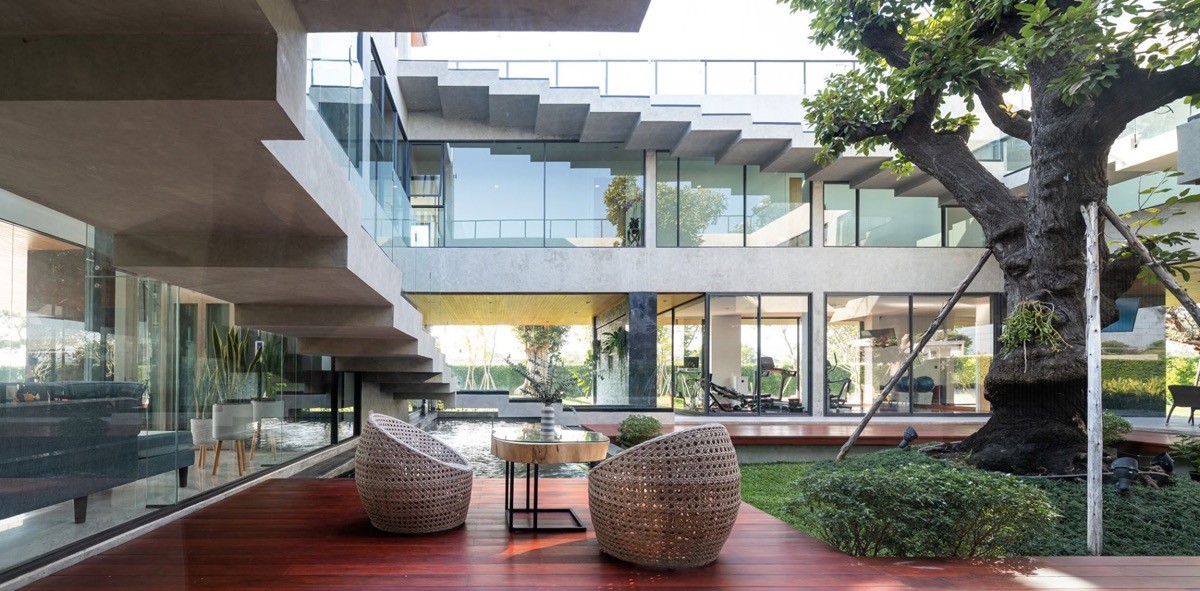
A gathering of modern outdoor chairs allow the peaceful courtyard atmosphere to be enjoyed at rest.
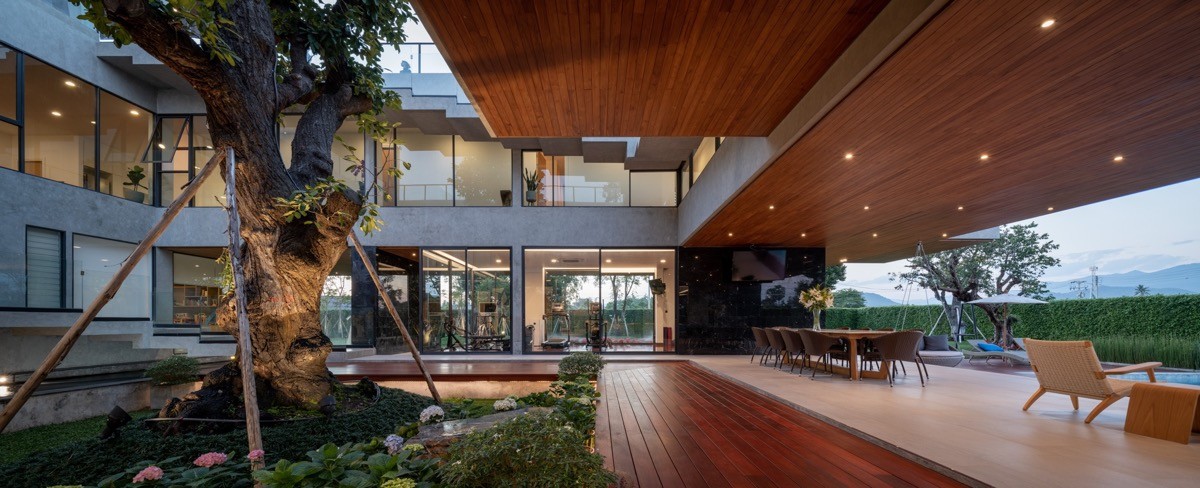
The number one concern for the architect and homeowners was how to design the house to promote happiness and a close relationship between all family members. In response, the design focuses on connections with nature, both inside and outside the house, and interlinking social spaces.
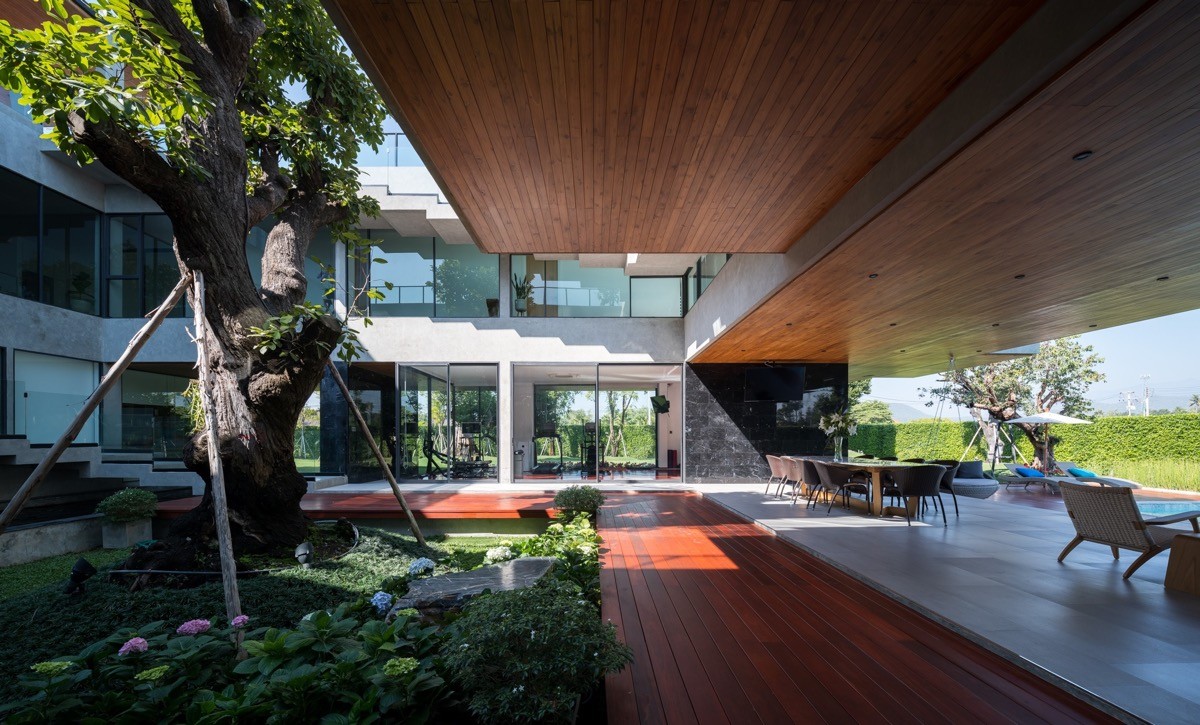
The design separates programs of the house into 3 main spaces: indoor, outdoor and semi-outdoor. Semi-outdoor spaces are the areas under overhangs, which is applied from the traditional Thai house. All three of these categories are considered equally important, and in this case have been skillfully connected by the central courtyard, which is the heart of this home.
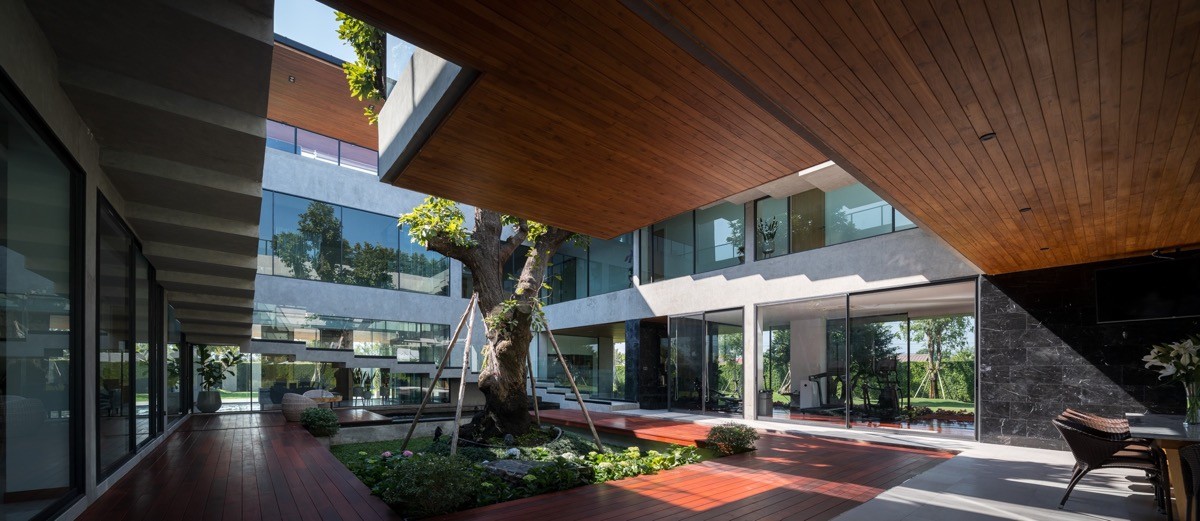
A lively atmosphere is important in the central area of the house, and so architectural elements were designed to help promote dynamic movement between surrounding spaces.
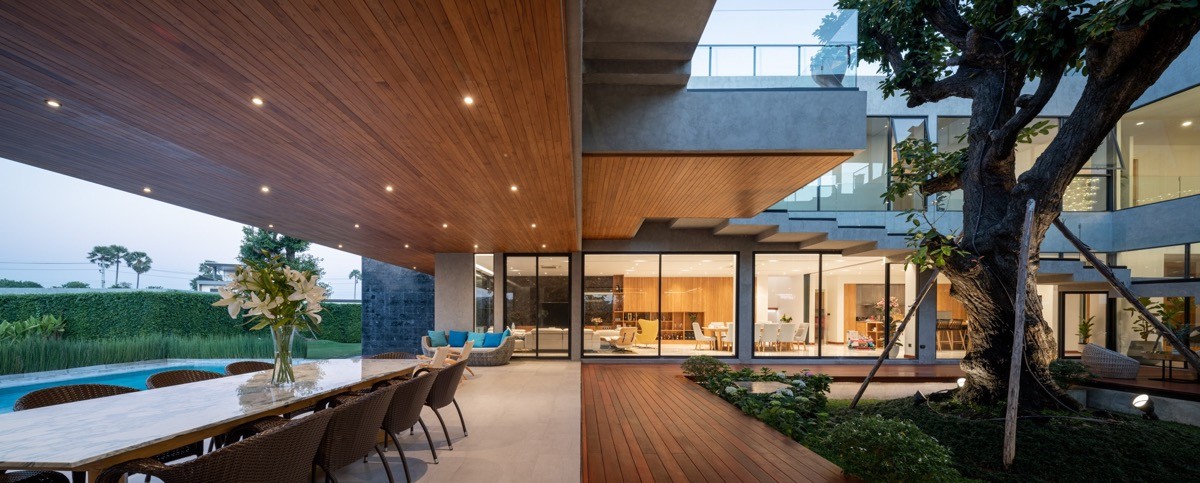
Overlapping layers have been developed into a number of functional ‘loops’, which originate in the central court and expand through vertical and horizontal axis.
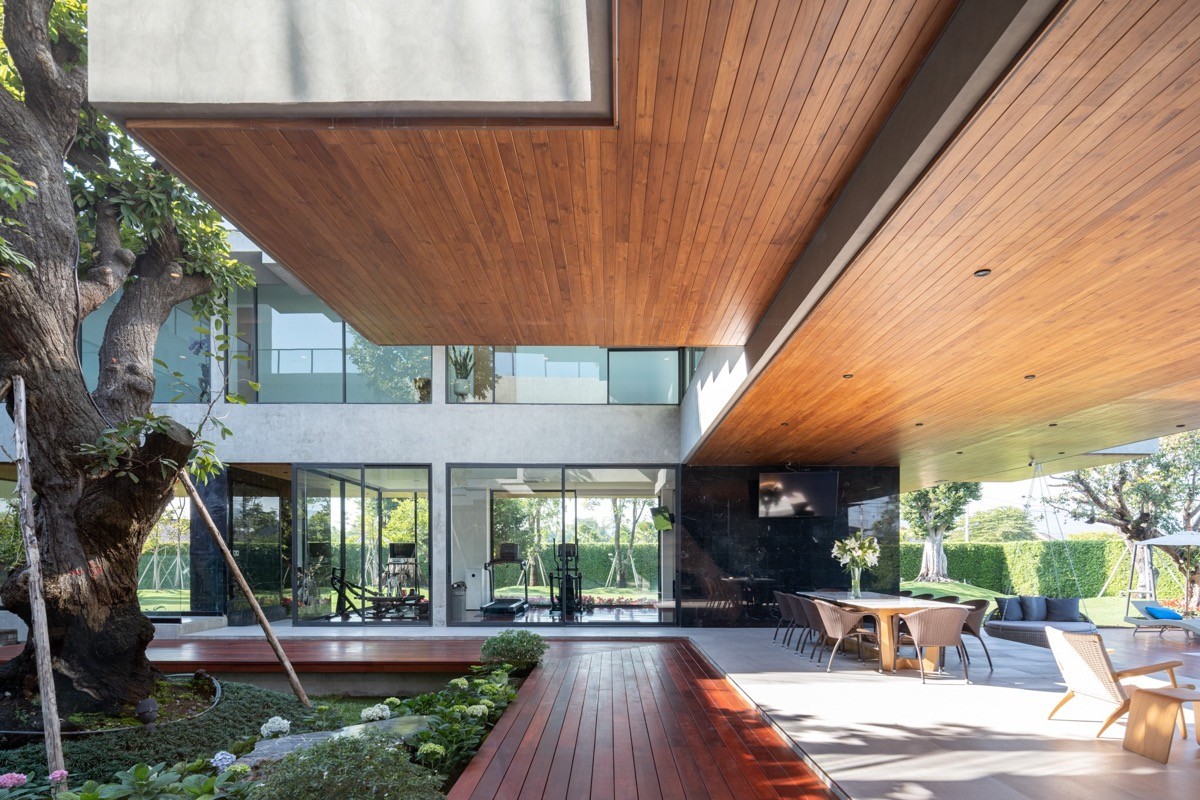
The first layer–or inner ‘loop’–is a wooden terrace around the courtyard. The terrace acts as a transition space between indoor and outdoor spaces, a circulation device.
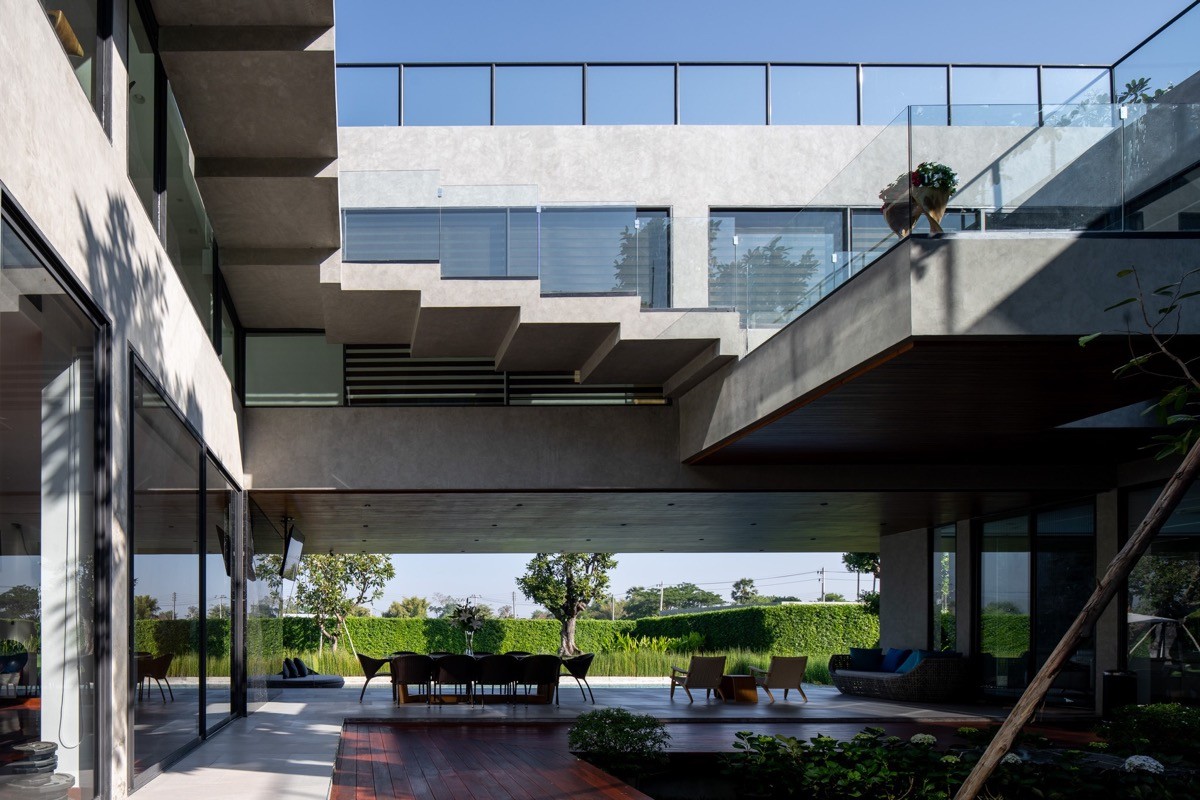
Stair treads measure a spacious one meter, to build a very gradual incline that is comfortable and relaxing to climb.
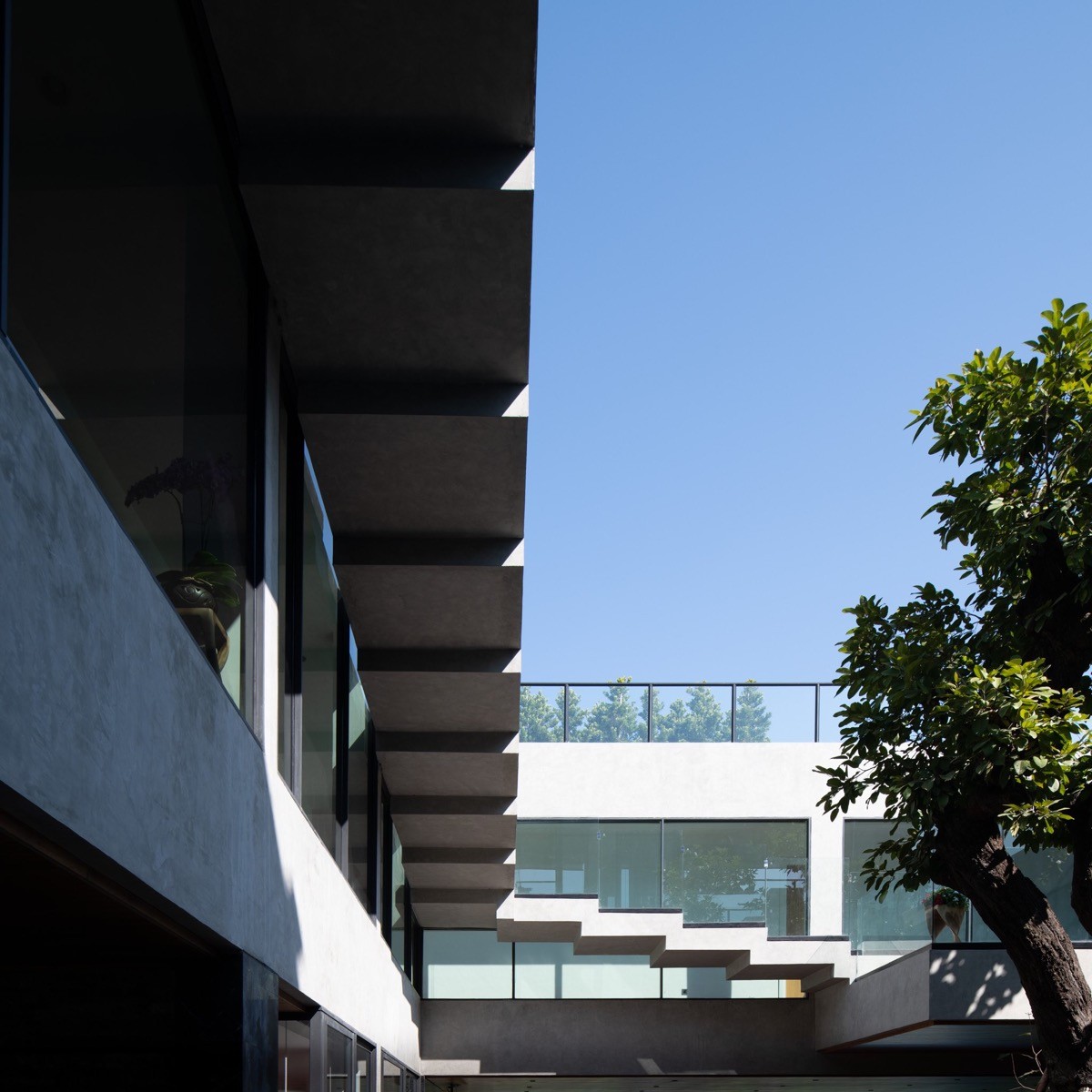
The stairs seem to float up the side of the house, thanks to hidden supports in the building structure.
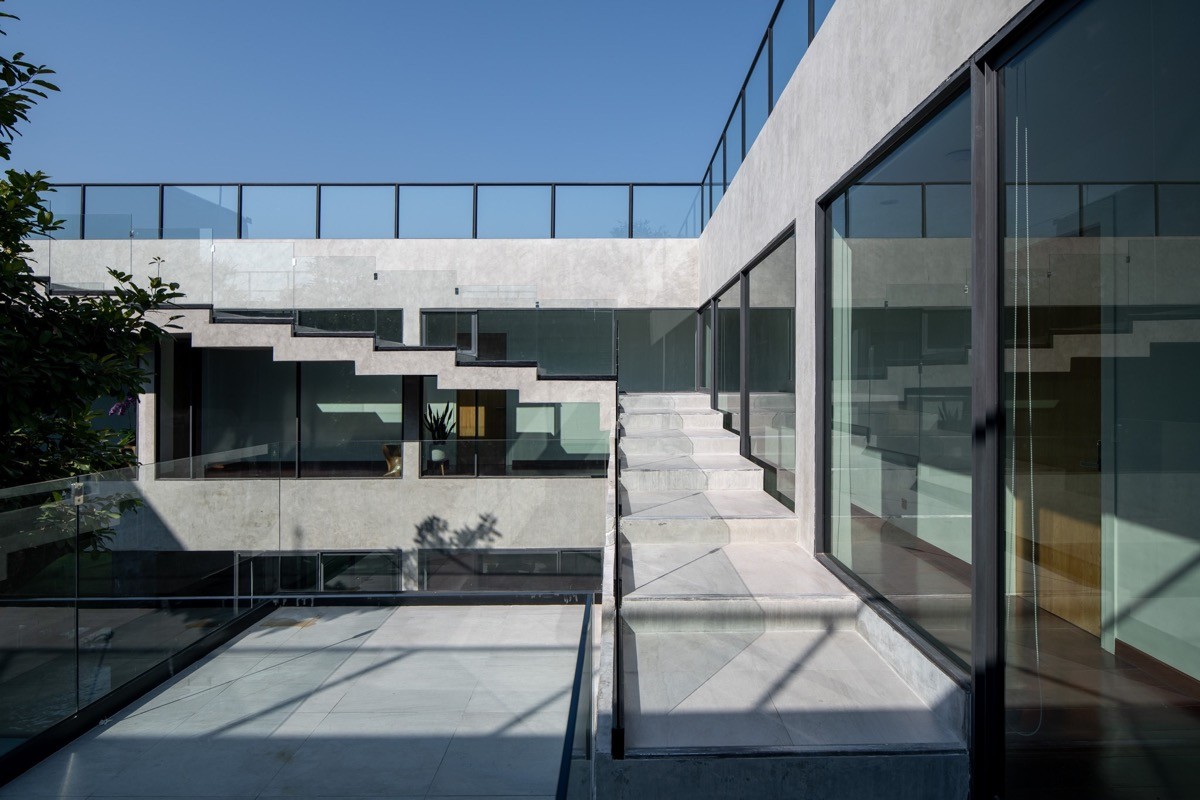
Family members can passively interact with the garden as they use the open sided staircase. They can even sit down here and rest a while, as though it were a multi-level terrace.
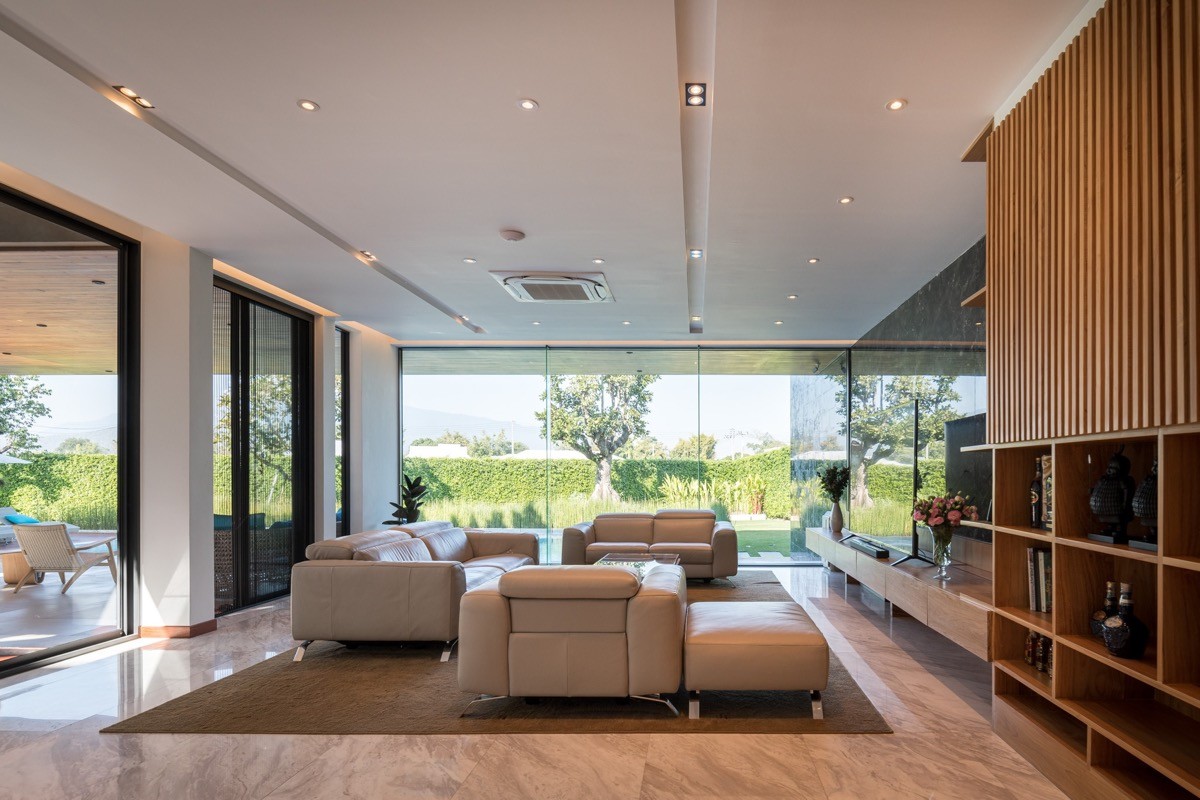
The third ‘loop’ is the living area for family activities indoors and semi-outdoors. The modern living room is equipped with a large television and TV stand, if everyone can ever agree on what to watch!
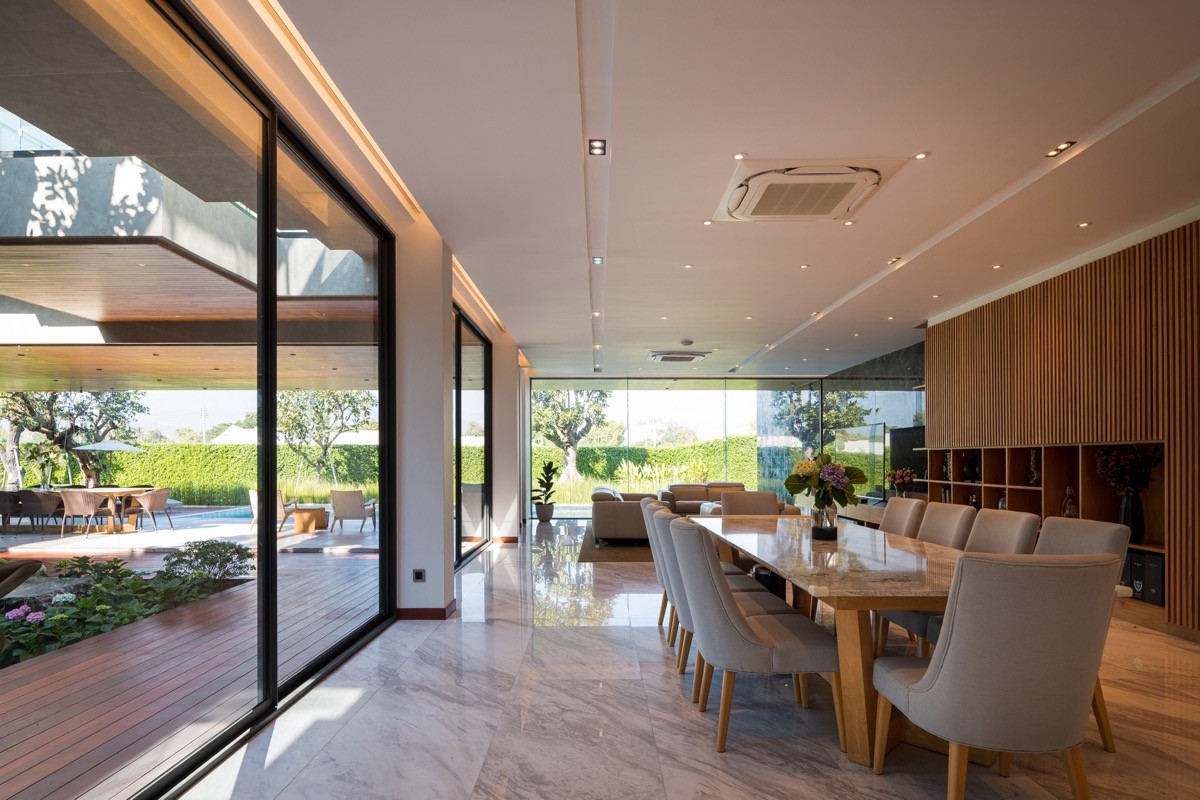
Long-span beams in the architecture allow more opportunity to view surrounding panorama, as well as maximising possibilities in spatial design. A long dining table accommodates family dinners.
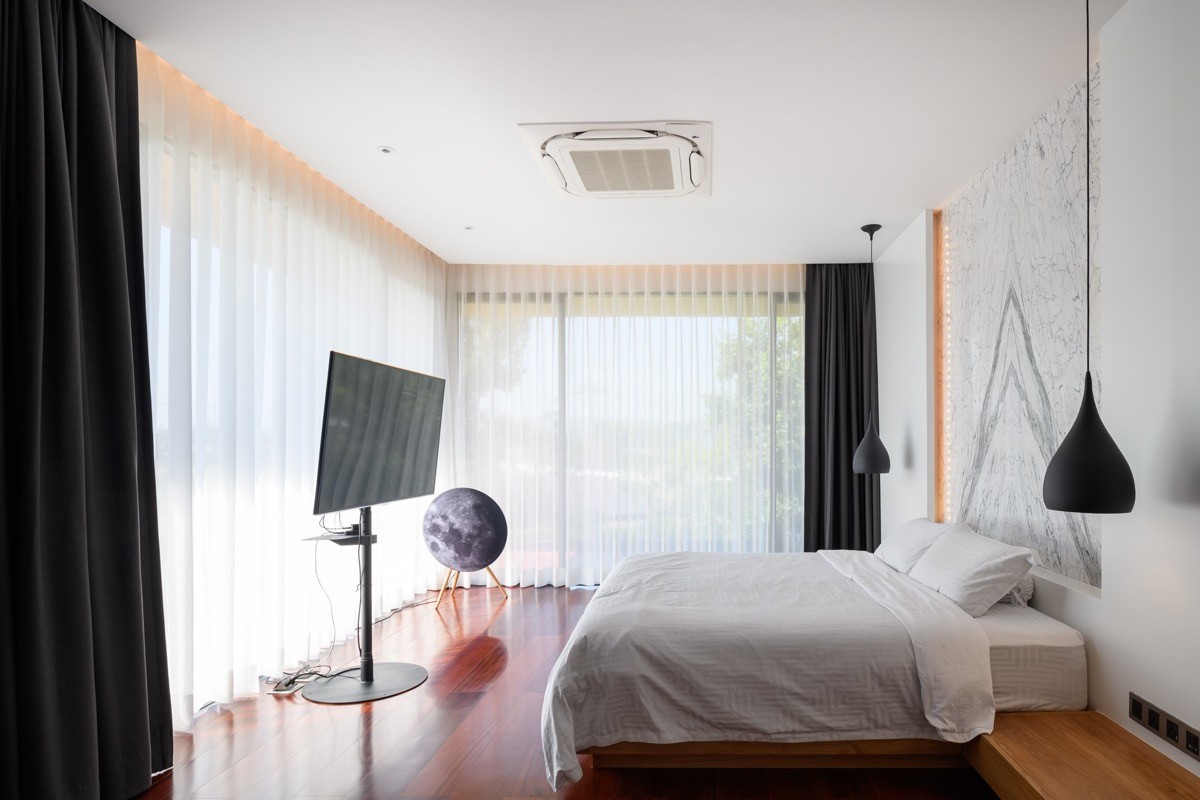
The outer ‘loop’ is where all bedrooms are located in their own private corners. The master bedroom belonging to the eldest parents is situated on the North side of the house, the son’s family bedrooms are in the South, and the East side is for the daughter’s family. Guest bedrooms take up the West side. All of the bedrooms are positioned thoughtfully so that they might enjoy a view of Doi Suthep mountain or other picturesque panorama.
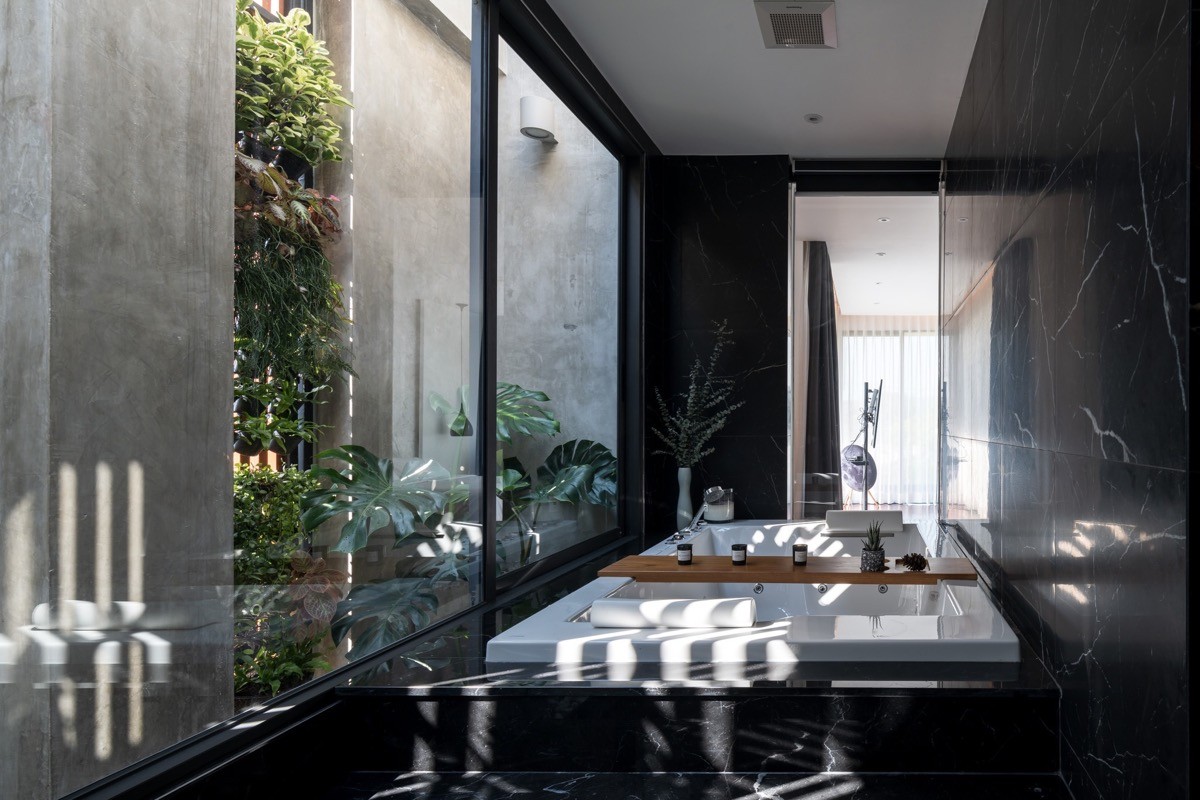
Vertical planting grows an intimate atmosphere by a sunken bathtub. Whilst raw concrete and simple stucco make up the main skin of the building, marble, granite and timber are introduced for a high-end finish.
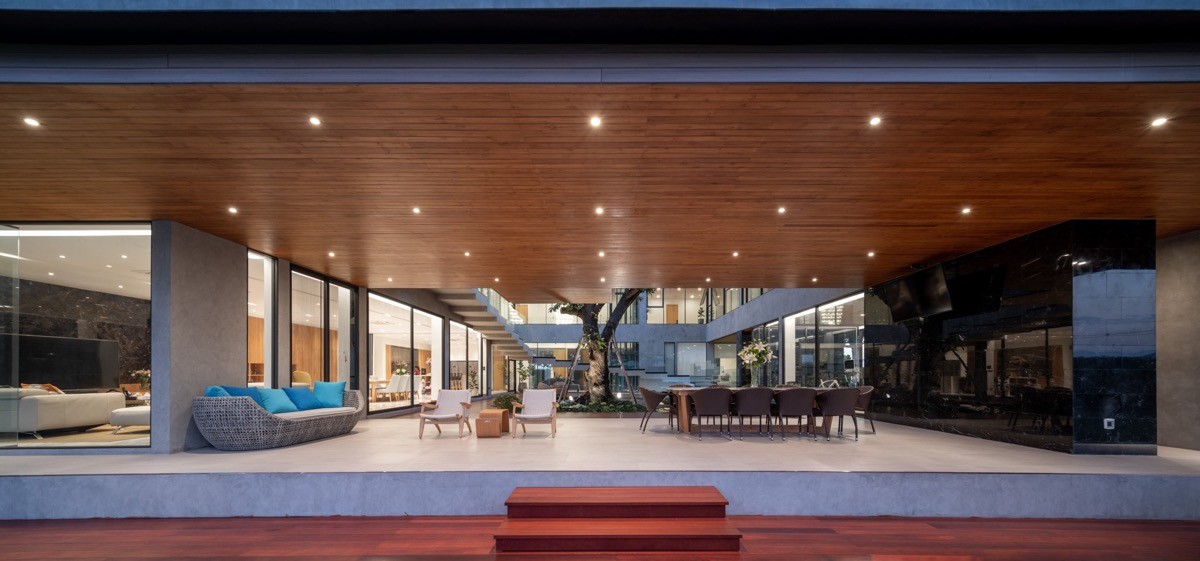
The architectural overhang provides a setting for semi-outdoor living areas. The cover provides shading, and also acts as a huge horizontal void that can harness natural light and bring cooling wind into the building and the courtyard.
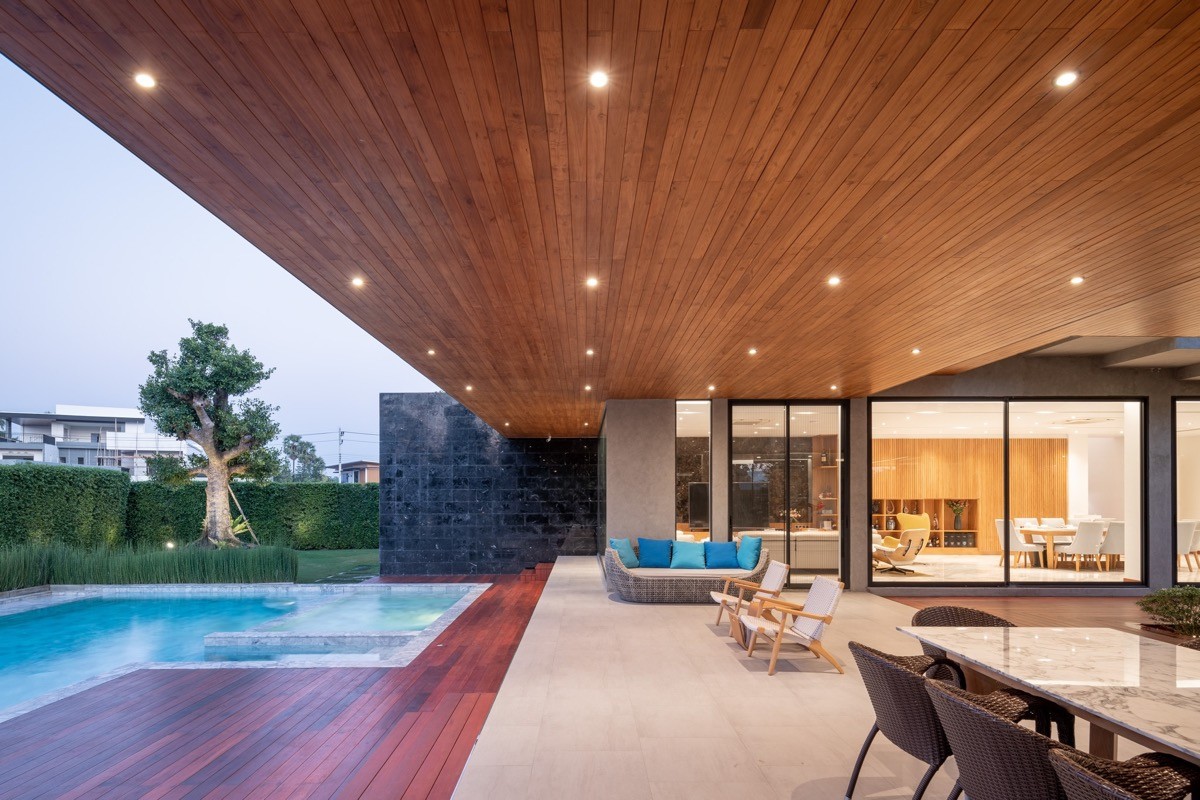
An al fresco dining area and an outdoor sofa and lounge chair set look out upon the large swimming pool that’s shared by the cohabiting family units.
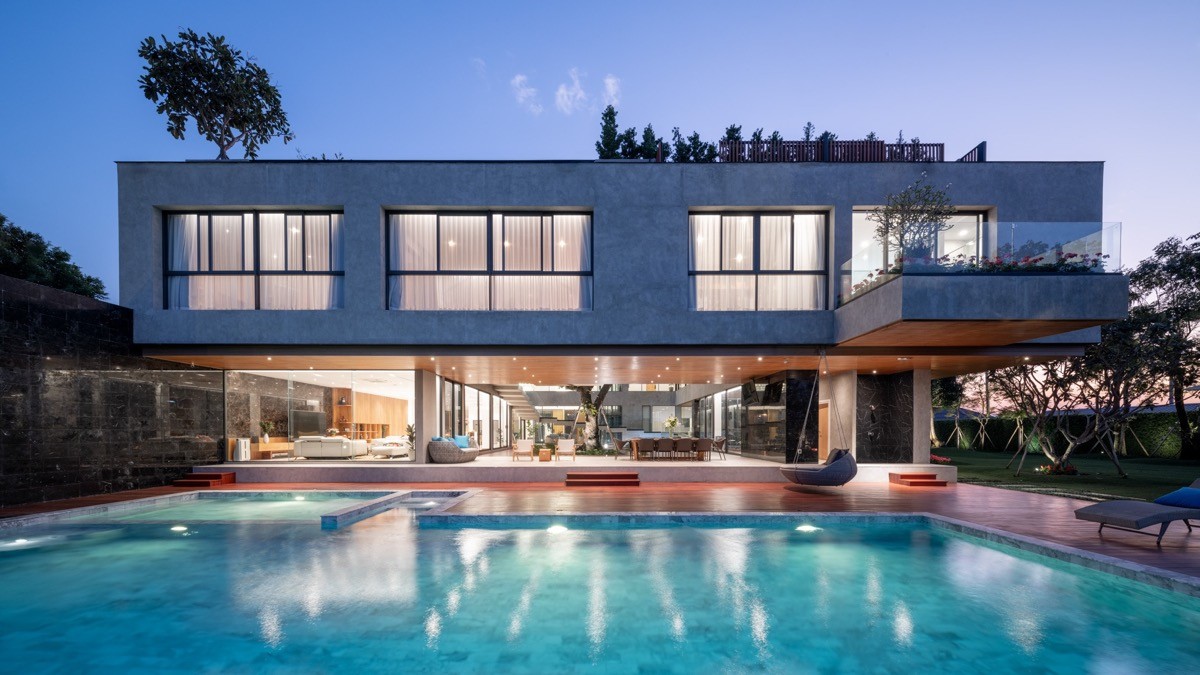
An outdoor chaise lounge chair reclines on the wooded pool terrace.
